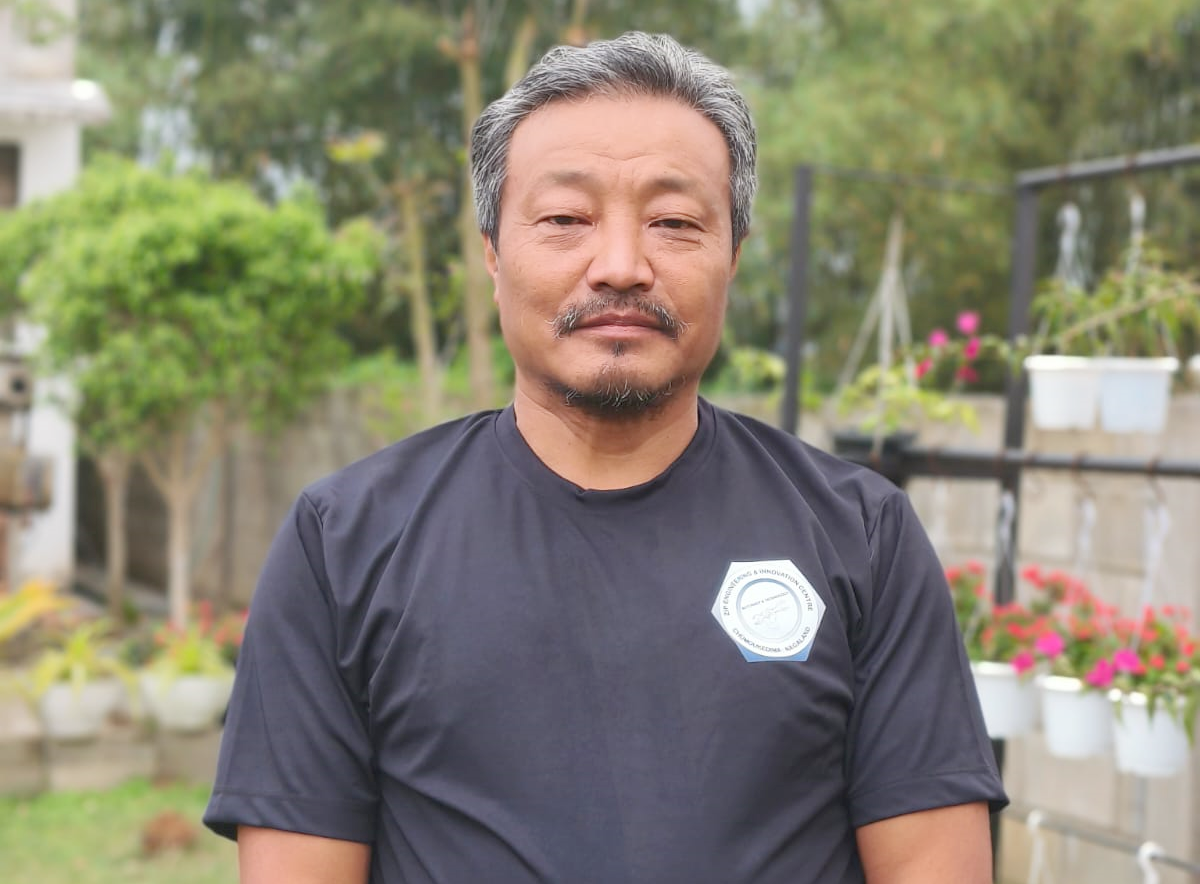The sound of tools clicking against metal, the hum of an old soldering iron and a child’s voice echoing from the next room, this is the backdrop of invention in Aoyim village, Chumukedima, where Lanu Jamir has spent the better part of his adult life building things that matter.
When Jamir began his journey, he wasn’t an engineering graduate from a prestigious university. He was a family man with children to raise and bills to pay, yet something inside him couldn’t rest. He had always been drawn to how things work. As a child, he repaired clocks, watches and radios. Later, he completed a diploma in computer hardware and electronics, not for a job, but to understand deeper. Which is to create.
His workshop wasn’t a lab. It was a small room beside his home, where he worked with minimal tools, late into the night, sometimes after helping with home chores or after tucking his kids into bed. It was here that he built his first invention – an Electronic Load Controller (ELC).
The ELC was no grand machine; it was quiet, analog and deeply effective. Designed to stabilize electricity produced by pico and micro hydropower generators, it ensured that homes using small water-powered systems could run lights, fans, and appliances without risk of damage. It functioned like a governor controlling frequency and voltage, making unpredictable power reliable. Lanu didn’t build it for fame. He built it because he saw the need. In many rural parts of Nagaland, people were harnessing streams and rivers for power but had no safe way to use it. Imported controllers were too costly. Jamir’s ELC was light, easy to install and affordable. Its practicality caught on, spreading not only through the Northeast but across Southeast Asia and even parts of Africa, where the same energy challenges exist.

He received recognition in 2019, when the National Innovation Foundation honored him with a Consolation Award, handed through the President of India. A few years later, in 2022, he was granted a 20-year patent for his design. For a self-taught innovator from a village, these weren’t just awards, they were proof that his work mattered. Still, he stayed grounded. “The biggest reward is when people call and say, ‘It works. It made our lives easier,’” he says.
Jamir’s next invention wasn’t about electricity, it was about voice, music and celebration. He noticed how hard it was for locals to find good sound systems for weddings, church gatherings, or community events. Most rental systems were too expensive or unreliable. So, like before, he set to work not to compete, but to contribute.
In 2013, he founded Zip Sound, building speaker systems by hand, piece by piece. Materials were hard to find. Some had to be imported. But the result was worth it. The speakers were crisp, durable and tuned for real-life environments, open-air meetings, prayer halls, even dusty football fields.
Today, Zip Sound is used across the region. It’s not just a rental service, it’s a sound brand made in Nagaland, by someone who understands what people need and what they can afford. Jamir doesn’t just deliver the sound. He shows up, sets it up, tests every mic and channel, and doesn’t leave until it’s right.
Jamir’s home is still in Aoyim. His workshop has grown a little more tools, better storage but the spirit remains unchanged. His children sometimes sit beside him while he works, watching, learning. “I want them to see that creating is not about having more, it’s about making the most of what you have,” he says.
He’s now developing a solar inverter, experimenting with graphite-based materials to improve speaker quality, and quietly training a few young people who are interested in electronics. He believes innovation shouldn’t just live in cities. “Villages have ideas too,” he says. “We just don’t always have the tools.”
As the world turns to artificial intelligence and automation, Lanu remains thoughtful. “AI can help us build faster, maybe even smarter. But there’s something about hands-on work, real understanding, that AI can’t replace. What comes from experience, from trial and failure, stays with you.”
For Jamir, the legacy he wants to leave isn’t only in patents or systems, it’s in mindset. That one can be a father, a villager, a self-learner, and still build something that reaches the world. That you don’t need a title to solve a problem. You just need to care enough to try.
Through power that keeps homes alive and sound that binds people together, Lanu Jamir is showing what it means to build with purpose and passion.
(Aroty Jamir is a young lady who has completed her MA in Mass Communication and Journalism from Kristu Jayanti College, Bangalore University and currently working under an NGO at Dimapur.)


